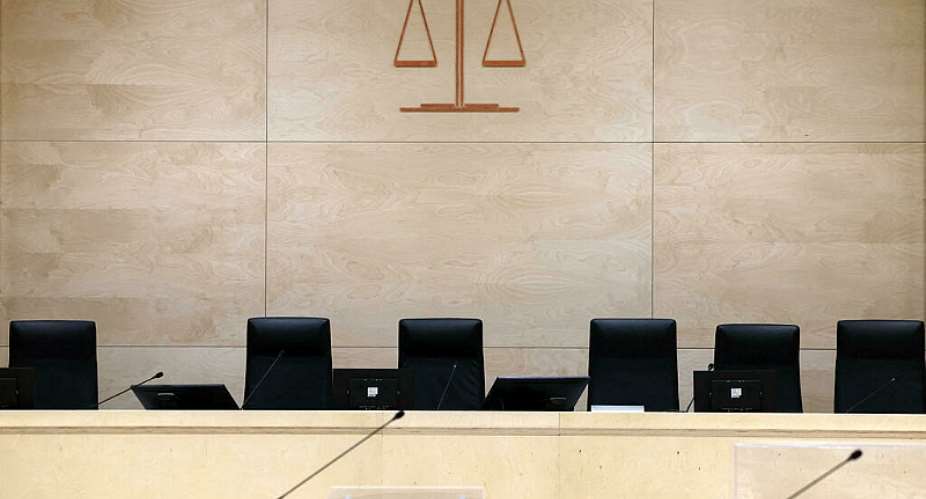Thirteen of the 14 men being judged for their implication in the November 2015 terrorist attacks chose to address the court on Monday. They variously expressed gratitude, contrition, sympathy for the survivors, the bereaved. There were tears.
Osama Krayem stayed silent to the end. This man, who risks spending the next three decades in jail and who renounced on the trial last November, saying it was all a sham, simply shook his head negatively when asked by the court president if he had anything to add in his defence.
All the others spoke.
Muhammad Usman, an Urdu speaker from Pakistan, thanked his lawyers in one sentence of impeccable French and sat back down.
Algerian Adel Haddadi added regrets for the victims and hopes for the future to his thanks, but also kept it short.
The others more or less stuck to the lines which must have been laid down in advance by their defence teams: be polite to the court, be thankful and respectful of French justice, acknowledge the suffering of the victims, condemn the attacks, don't talk too much.
It was anything but an empty exercise.
Thanks to the families of the victims
The jaunty Hamza Attou set the tone by thanking the civil witnesses, the families of the victims, for their unfailing friendship and support.
Abdellah Chouaa was overcome by emotion. He said "I am not a terrorist. I have never been a terrorist. I am not one of those people.
"I admit that I brought Abrini to the airport. And I collected him on the way back. But I never knew what he was planning, never. And I will suffer for this for the rest of my days."
Evoking his 12-year-old son, Abdellah Chouaa broke down and cried.
Minutes later, Mohammed Abrini had a private message for Chouaa, in the midst of his own moving evocation of the courage and generosity of the bereaved.
"It is my fault that Abdellah went to jail, despite the fact that he is innocent. I have wronged a lot of people. I could have stopped all this."
The dark defiance of Sofien Ayari
The black-clad Sofien Ayari was defiant, explaining the difficulty of speaking in an environment in which everyone doubts his sincerity.
"I tried to explain about going to Syria, about becoming a fighter. I hope that nothing like these attacks will ever happen again, anywhere in the world.
"I have spoken in an effort to help the families of the victims.
"But I have heard the most ridiculous nonsense in this court. We were described as absolutist fanatics, suffering from sexual frustration.
"Because society won't give us jobs, we murder people. Because we can't have normal relationships, we rape women. It has been hard to listen to.
"That was not my experience.
"Let those who are guilty pay the penalty, don't punish those you happen to have under your thumb.
"I hardly know what to say to the families, since I realise they will never forget, never recover. But I hope they can someday rebuild their lives."
'Who can be insincere before so much suffering?'
Salah Abdeslam was the last to speak. He, too, began by addressing the hurt, the bereaved.
"I have already asked for forgiveness," he said, "and some people said it was a strategy, that I was being insincere.
"Who could be insincere in the face of more than 130 dead, 400 injured . . . so much suffering?
"I am not a killer. If you convict me of that, you will commit an injustice."
And so the Paris attacks hearings, which opened on 8 September last year, come to an end.
The five judges have retired to consider their verdicts. An announcement is expected on Wednesday.





 Ensure private schools employ professional teachers, not SHS graduates — Xandy K...
Ensure private schools employ professional teachers, not SHS graduates — Xandy K...
 Alan Kyeremanten was the brain behind Ghana Card not Bawumia — Hopeson Adorye
Alan Kyeremanten was the brain behind Ghana Card not Bawumia — Hopeson Adorye
 I'm not running for office for power prestige, I just want to solve Ghana’s prob...
I'm not running for office for power prestige, I just want to solve Ghana’s prob...
 Provide immediate assistance to our displaced residents — Oda Nkwanta residents ...
Provide immediate assistance to our displaced residents — Oda Nkwanta residents ...
 Send nurses abroad; it’s a better option than being unemployed in Ghana — NDC Pa...
Send nurses abroad; it’s a better option than being unemployed in Ghana — NDC Pa...
 Bawumia stole free tertiary education for Persons with Disabilities from NDC’s 2...
Bawumia stole free tertiary education for Persons with Disabilities from NDC’s 2...
 Ejisu by-election: Anger is bound to occur but return to your 'sweet home' — Nan...
Ejisu by-election: Anger is bound to occur but return to your 'sweet home' — Nan...
 Limited voters registration: Don't allow politicians to engage your minors for p...
Limited voters registration: Don't allow politicians to engage your minors for p...
 Ferry on Oti River breaks down; drivers and passengers stranded
Ferry on Oti River breaks down; drivers and passengers stranded
